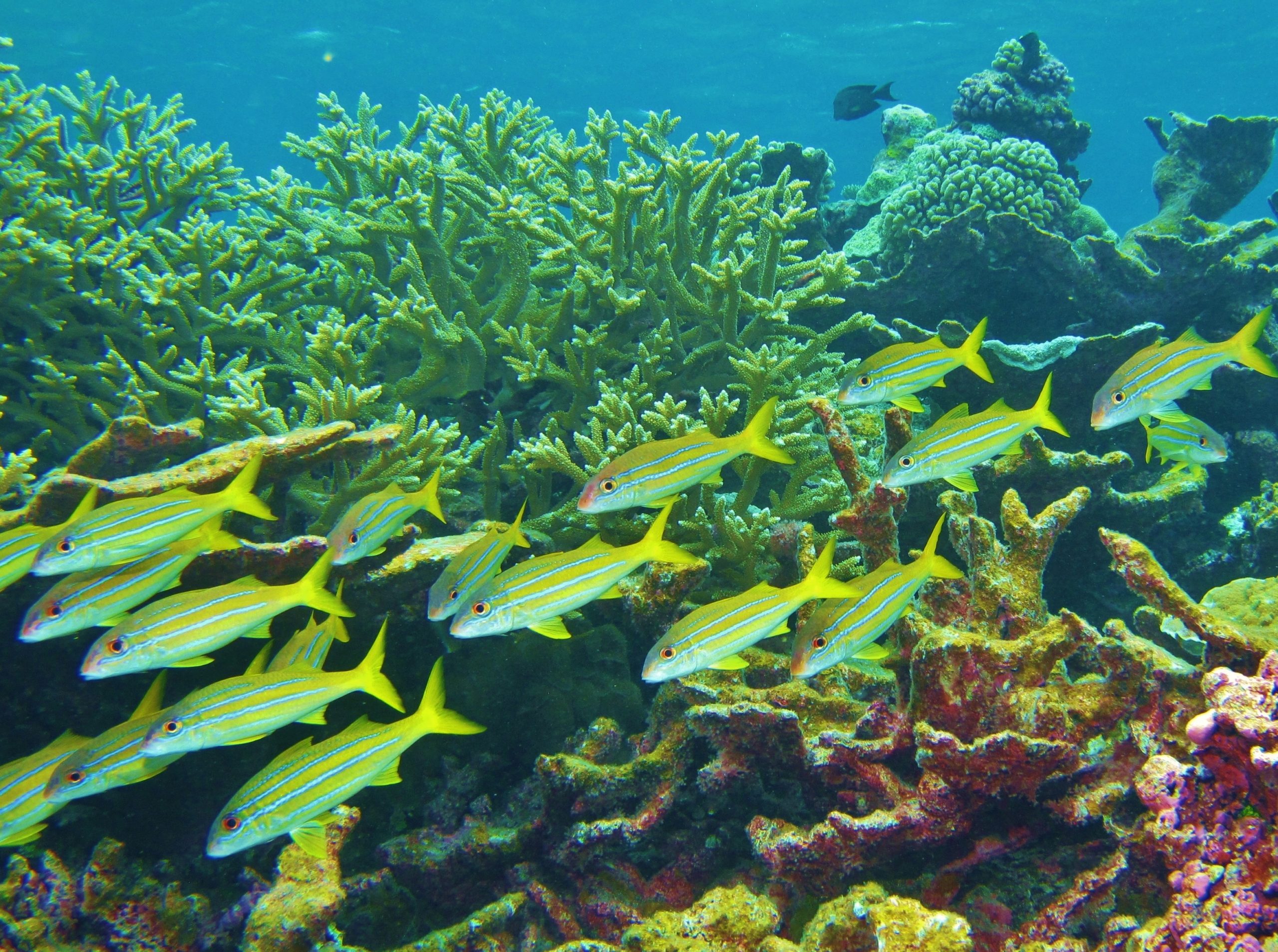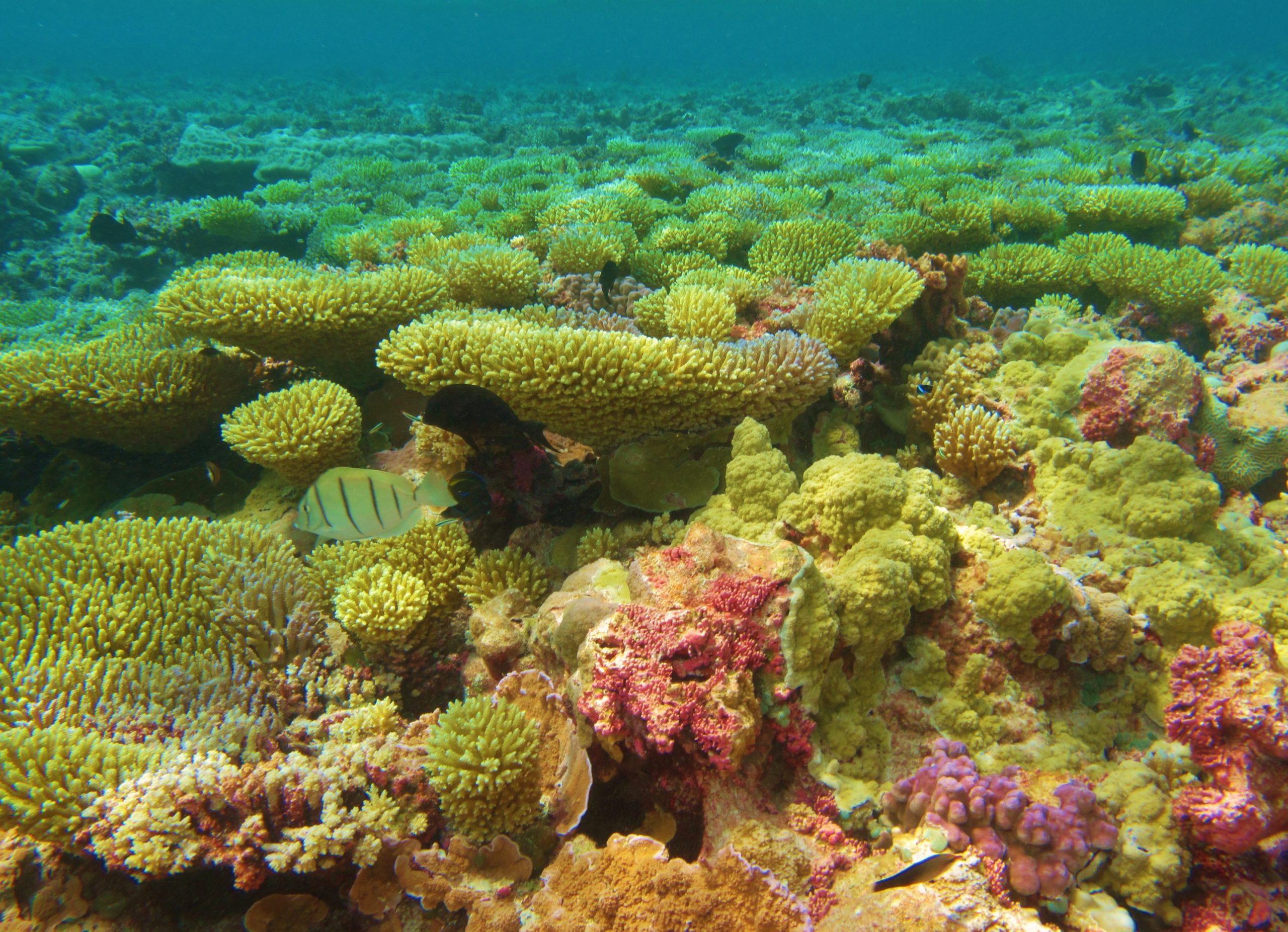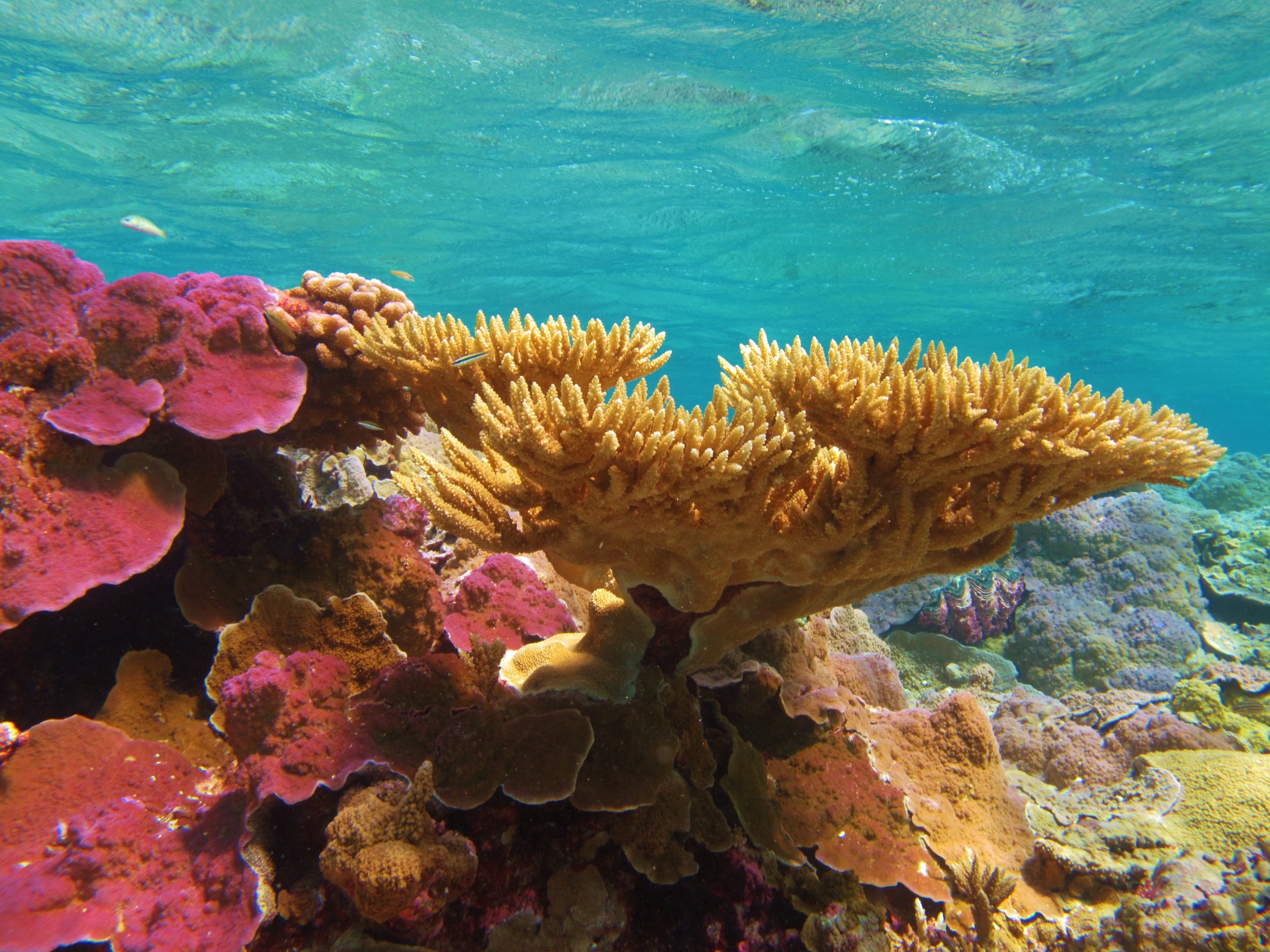Coral reefs around the world are being hit hard by many stressors. At the local level, they’re dealing with issues like overfishing and poor water quality. At the global level, they’re facing warming temperatures, more acidic oceans, and stronger storms. With effective management, we can mitigate many local threats. But the global ones are a bit harder. It’s clear that if corals are going to survive global climate change, they are going to have to adapt.
The good news is that we know that corals can adapt. They have evolved numerous ways to deal with environmental conditions – for example, some corals thrive in murky river mouths while others flourish in warm-water lagoons. But the pace of climate change is rapid, leaving corals with a small window in which to adjust to rapidly changing conditions.

So what can we do to help corals adapt? This was the topic of one of Monday’s sessions at the International Coral Reef Symposium (ICRS). Lead by our very own Dr. Madhavi Colton, the session brought together experts in coral reef biology, genetics, and ecology to answer this very question.
Many of the talks in this session focused on assisted evolution—that is, speeding up evolution through direct management. For example, one speaker shared her work creating hybrid corals—similar to work being done to create hybrid tomatoes. If you breed the sperm from one species of coral with the egg from another, can you create a coral that will do better under future conditions?
Dr. Adrian Stier of the University of Washington called these predict-and-prescribe approaches. Predict-and-prescribe approaches place bets about what future conditions will look like and which corals will do better under these conditions. If those predictions are correct, then these strategies can be incredibly effective. But according to Stier, they are also inherently risky because they are focused on a few species or genes. What if those bets are wrong? We risk losing the very diversity from which climate change winners could naturally emerge.

Instead, Stier advocated following Warren Buffet’s example. Financial markets are like ecosystems in that they are inherently unpredictable (despite what your financial manager might have told you!). In the face of this uncertain future, a smart investment decision is to hedge your bets and diversify your portfolio. Through diverse investments, you are less likely to lose everything and more likely to consistently gets better returns.
We can do the same for coral reefs, Stier said. Instead of investing all of our efforts into creating corals of the future, we can protect diverse portfolios of options. We can let nature pick the winners. As one member of the audience stated, if we focus our efforts on reducing local threats—many local threats, not just one or two—and building marine protected areas that are connected to each other, we’ll have a better chance of corals adapting to future environmental changes.

